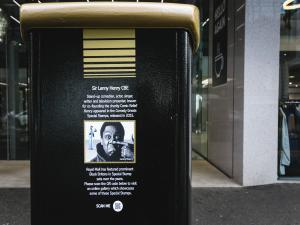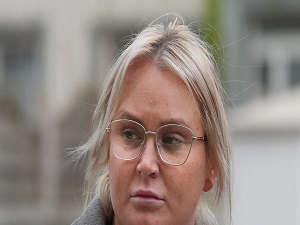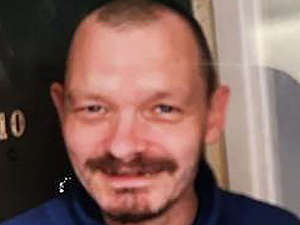
by PA Media
Some of the UK's landmark red postboxes are to be painted black to honour black figures both past and present, including Sir Lenny Henry and nursing pioneer Mary Seacole.
Royal Mail said that four postboxes – in London, Glasgow, Cardiff and Belfast – have been painted black with a gold trim as part of Black History Month in October.
Each of the special edition postboxes has a social media link and features a significant figure in the British black community.
Peter De Norville, Royal Mail’s head of diversity and inclusion, said: “Black History Month is a great opportunity to celebrate the contributions that black people have made to this country over many generations.
“We are also using it as an opportunity to celebrate the vital work that our black employees do throughout the nation, from the mail bag to the meeting room.”
The aim is for the postboxes to help people mark the success of black Britons, Royal Mail said.
A QR code on the postboxes can be scanned to bring up a full list, and a dedicated online gallery on the Royal Mail website, of the black Britons who have appeared on the special stamps over the years.
Sir Lenny Henry, the stand-up comedian, actor, singer, writer and television presenter and co-founder of the Comic Relief charity, is honoured by the postbox in Bedford Street, Belfast.
The London postbox is in Acre Lane in Brixton, which is near to Black Cultural Archives – a leading museum for the British black community.
This box features the image Queuing at the RA by Yinka Shonibare, one of six artists who was commissioned by Royal Mail to produce original artworks for a set of special stamps issued to mark the 250th anniversary of the Royal Academy (RA).
Mr Shonibare said: “As a citizen of the commonwealth, it was particularly important to me to be making a visible contribution in a historic public space.”
Footballer Walter Tull, who become the first black player for Rangers, appears on the Glasgow postbox in Byres Road.
He featured in a set of stamps released in 2018 to mark the centenary of the end of the First World War, and was also the first black Army officer to command troops in a regular unit.
He was killed in action during the war.
Mary Seacole, who nursed wounded British soldiers back to health during the Crimean War and built a dedicated place for them to recuperate known as the British Hotel, appears on the Cardiff postbox at King Edward VII Avenue.


 O’Neill ‘did not see ex-press officer McMonagle at Stormont event’
O’Neill ‘did not see ex-press officer McMonagle at Stormont event’
 Majority of teachers reject pay offer for second time
Majority of teachers reject pay offer for second time
 Police investigate ‘racially motivated hate crime’ in west Belfast
Police investigate ‘racially motivated hate crime’ in west Belfast
 Woman stabbed partner as he slept in ‘premeditated’ murder, court told
Woman stabbed partner as he slept in ‘premeditated’ murder, court told
 Police make new appeal over missing man last seen in October
Police make new appeal over missing man last seen in October